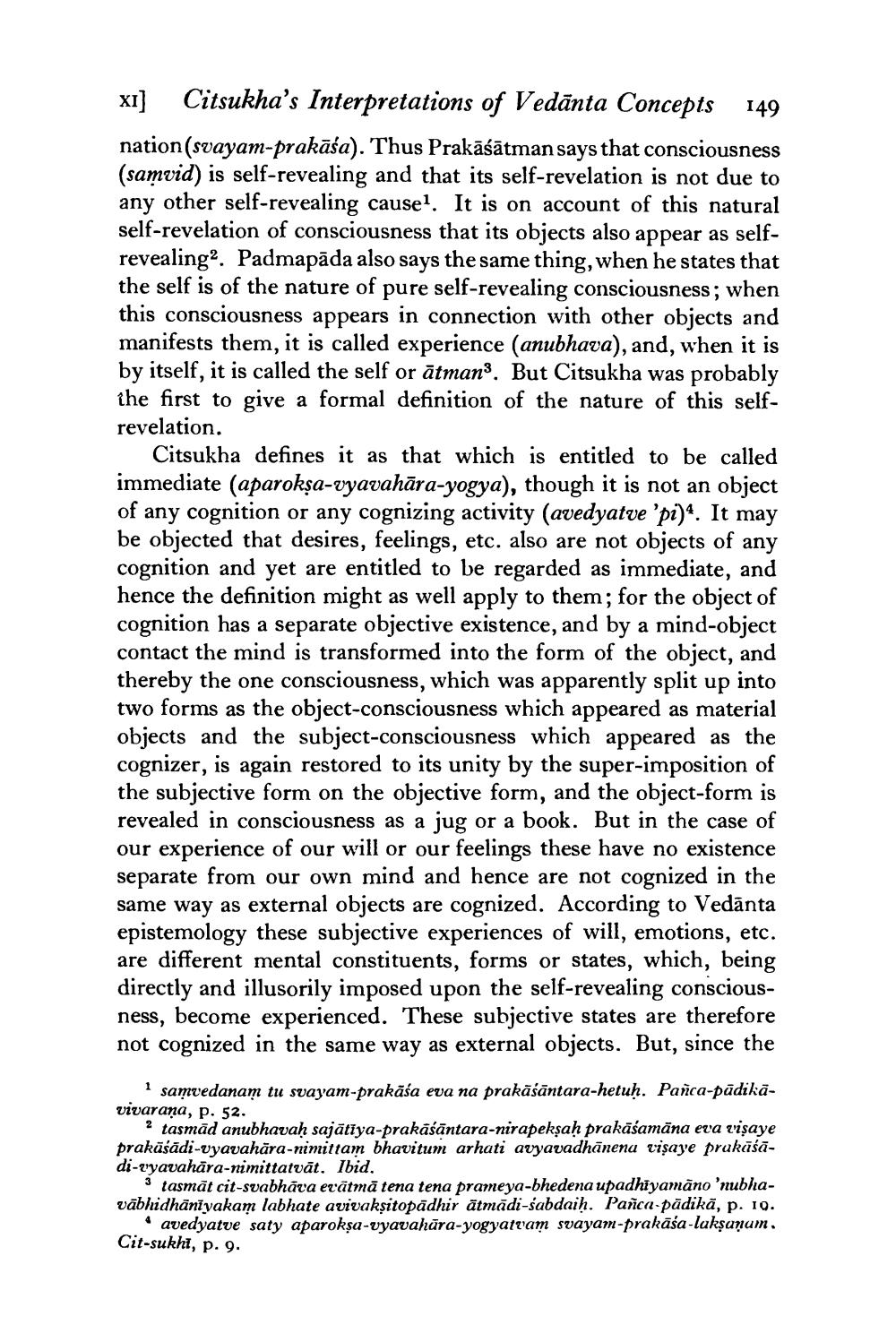________________
XI] Citsukha's Interpretations of Vedanta Concepts 149
nation (svayam-prakāśa). Thus Prakāśātman says that consciousness (samvid) is self-revealing and that its self-revelation is not due to any other self-revealing cause1. It is on account of this natural self-revelation of consciousness that its objects also appear as selfrevealing2. Padmapada also says the same thing, when he states that the self is of the nature of pure self-revealing consciousness; when this consciousness appears in connection with other objects and manifests them, it is called experience (anubhava), and, when it is by itself, it is called the self or atman3. But Citsukha was probably the first to give a formal definition of the nature of this selfrevelation.
Citsukha defines it as that which is entitled to be called immediate (aparokṣa-vyavahāra-yogya), though it is not an object of any cognition or any cognizing activity (avedyatve 'pi)*. It may be objected that desires, feelings, etc. also are not objects of any cognition and yet are entitled to be regarded as immediate, and hence the definition might as well apply to them; for the object of cognition has a separate objective existence, and by a mind-object contact the mind is transformed into the form of the object, and thereby the one consciousness, which was apparently split up into two forms as the object-consciousness which appeared as material objects and the subject-consciousness which appeared as the cognizer, is again restored to its unity by the super-imposition of the subjective form on the objective form, and the object-form is revealed in consciousness as a jug or a book. But in the case of our experience of our will or our feelings these have no existence separate from our own mind and hence are not cognized in the same way as external objects are cognized. According to Vedanta epistemology these subjective experiences of will, emotions, etc. are different mental constituents, forms or states, which, being directly and illusorily imposed upon the self-revealing consciousness, become experienced. These subjective states are therefore not cognized in the same way as external objects. But, since the
1 samvedanam tu svayam-prakāśa eva na prakāśāntara-hetuḥ. Panca-padikāvivarana, p. 52.
2 tasmād anubhavaḥ sajātīya-prakāśāntara-nirapekṣaḥ prakāśamāna eva viṣaye prakāśādi-vyavahara-nimittam bhavitum arhati avyavadhanena viṣaye prakāśādi-vyavahara-nimittatvat. Ibid.
3 tasmāt cit-svabhāva evātmā tena tena prameya-bhedena upadhiyamāno 'nubhavābhidhāniyakam labhate avivakṣitopādhir ātmādi-sabdaiḥ. Pañca-pādikā, p. 19. avedyatve saty aparokṣa-vyavahāra-yogyatvam svayam-prakāśa-lakṣaṇam.
Cit-sukhi, p. 9.




